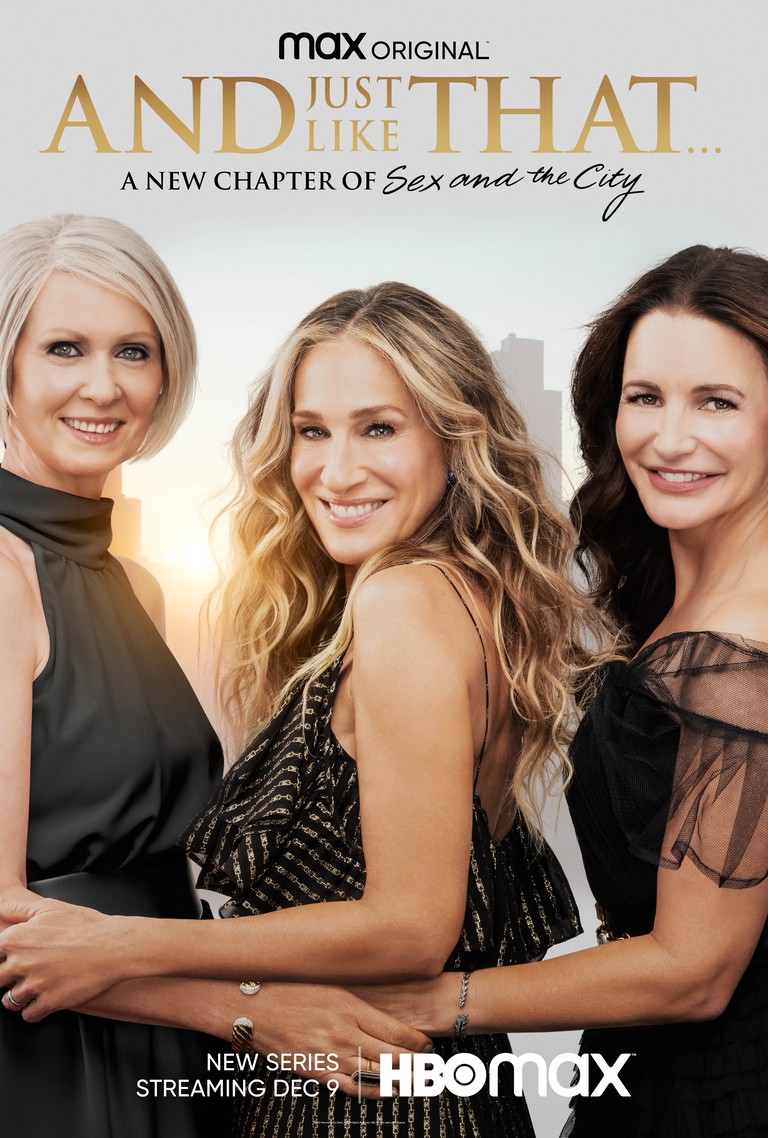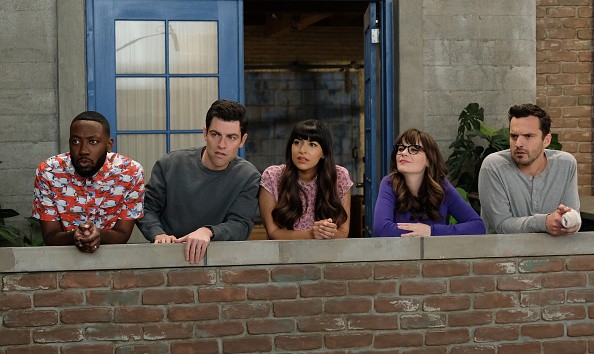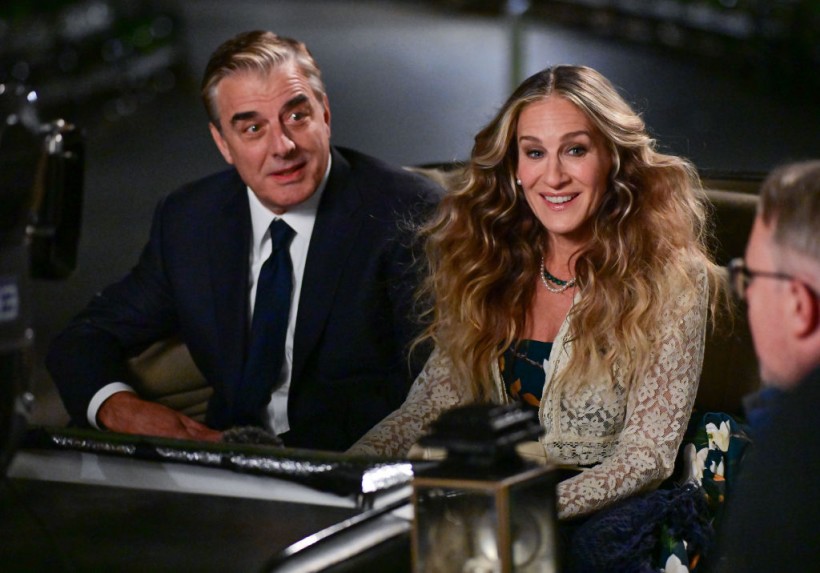IS IT REALLY A SPOILER ALERT? Major 'And Just Like That' Staring Sarah Jessica Parker Confronts the Changing Attitude Around Spoiler-Culture! (No Spoilers In Article!)

[Ironically, this article about spoilers contains no spoilers. Therefore, regardless of your opinion of spoilers, you can feel free to read this essay about spoilers without fear of anything being spoiled.]
The first two episodes of the long awaited Sex and the City reboot And Just Like That were released on Friday. After nearly twenty years since the series concluded and over ten years since the last movie, it's safe to say that fans were excited to hear more about their favorite friend group in this new chapter of their lives.
But if you were not ready to watch the episodes the SECOND they came out, there was probably no point in watching it later.
One day after these first episodes aired, a MAJOR spoiler about the episode was EVERYWHERE: media headlines, Instagram posts, even Peloton commercials featuring Ryan Reynolds. If you have so much as looked at Twitter, you know the big And Just Like That reveal. While it may seem that giving people under seventy-two hours before openly discussing a major spoiler is unprecedented and unfair, it actually makes sense.

The break-neck speed with which streaming services put out new content is impossible to keep up with. If you spent every second of every day watching television, you still would not be caught up on every popular show in the cultural zeitgeist. If it is impossible for everyone to see every show, how are media outlets supposed to determine the appropriate amount of time to wait before openly discussing spoilers as common knowledge? We live in a world of instantaneous gratification. While, yes, it is unfortunate if you were on a retreat without internet the weekend the show came out, it is fair to assume that those that are genuinely excited about a show would see it the moment it is released. Otherwise it is fair game.
The real question is: do we care?
"Spoilers" were so aptly named for they implied that the knowledge of what was going to happen within the storyline would ultimately ruin the movie.This, however, has shifted with the golden age of television we exist within today. Spoilers are everywhere, but viewership rates are not down. Spoilers no longer spoil shows. They encourage audiences to watch shows differently. Due to the over inundation of content, viewers have stopped lamenting spoilers and have instead started using them to give themselves the freedom to watch shows with a more critical eye.
Over inundation leads to apathy. We see it in many fields, and television is no exception. There is so much content coming out at such an overwhelming speed that the only way to completely avoid all spoilers would be to throw your phone into a river, disassemble your computer for parts, and go live in the mountains. (Or you could just turn your devices off, but you get the idea). Therefore, caring about every spoiler you see is emotionally exhausting (anger is one of the most tiring emotions). Therefore, many people, including streaming services and news sites have stopped trying to hide spoilers and viewers have, for the most part, stopped trying to hide from them. Instead, they have become part of the viewing experience.

In order to understand spoiler culture, we must first look at the impact that re-watch culture has had on the modern day television viewer. New Girl ended back in 2018, but I still re-watch it every night when I get home from work. I know what's going to happen. I know all of the major reveals, plot twists, and surprising comedic moments. This doesn't stop me from re-watching it, laughing like it's the first time. What this proves (other than that New Girl is a phenomenal show that you need to watch if you want a fuller life) is that the viewer, by and large, is not in it for the surprises. In fact, we find comfort in knowing what is going to happen. An article on Psychology Today, which does include some New Girl spoilers, pointed out that the inclination to re-watch shows rather than engage in a new story has to do with the higher cognitive load that many of us are currently handling. Jennifer V. Fayard Ph.D. writes
our working memory is a limited resource, and there comes a point at which we simply cannot deal with anything else. Increased Zoom meetings, divided attention, unfamiliar and changing work conditions, balancing work and childcare, and other concerns zapped most of our processing capacities. Under a heavy cognitive load, we might turn to shows we've already seen and loved instead of new ones so that we don't have to pile anything else onto our mental plates.
We are LITERALLY unable to handle new information. Therefore, the anticipation of a major twist is often a source of anxiety rather than motivation to watch the show. However, when you know what is going to happen may alleviate some of the stress of the unknown, inspiring you to contextualize the knowledge you now have. People, more often than not, turn to television for escape rather than suspense. Therefore spoilers only encourage people to watch more.

In today's world, when people get invested in shows, they like to go deep. They want each character to feel like a friend they know intimately, a storyline they are well acquainted with, and a world they understand. By knowing spoilers prior to watching the show, the viewer is ready to watch shows with a more critical eye, spotting background moments, catching small jokes. It gives the audience a deeper appreciation for the complexity of the show's world and writing. It actually promotes more nuanced and intellectual conversations about different productions because it allows the audience to focus on other elements instead of fighting to keep up with the plot.

Spoilers are not the monumental deal they used to be. They are just an expected part of the viewership experience today. There are DEFINITELY exceptions to the rule. If you ruined Game of Thrones for someone, you're a monster. The more the company cares, the more the audience cares. For example, Marvel keeps every spoiler under wraps. Therefore, if you spoil a Marvel movie for someone, they will care because the MCU has, through its actions, set the precedent that a spoiler will ruin the movie (and movies are DEFINITELY different from TV, but that is a whole different article). Yet, when a show, such as And Just Like That is so casual about major spoilers, the same lack of concern is emulated by the viewer. We understand that the content is solid, even if we know what is going to happen. Spoilers actually help to ensure that content is higher quality: it can't rely on surprises and plot devices for high ratings. The writing, characters, and dynamics need to be great because, by and large, we already know what's going to happen.

So, thank you spoilers for promoting a higher quality of TV! That being said, it's still not cool to walk around spoiling shows for people. The entertainment industry may have changed, but, still, no one likes that guy.








